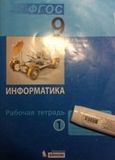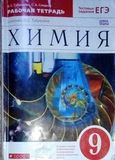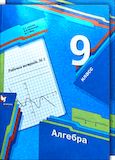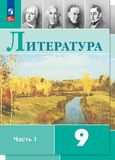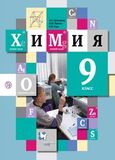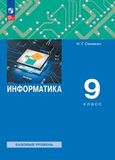Стр.19 Unit 1 Жертвы моды? ГДЗ Комарова Ларионова 9 класс
Грамматика
Present simple или present continuous
present simple
Мы используем present simple
• для привычек и распорядка дня.
They go to school in Oxford. (Они ходят в школу в Оксфорде.)
• с наречиями частотности.
They never use pesticides. (Они никогда не используют пестициды.)
• для описания краткого изложения событий.
They travel to Jaipur... There they find an ethical factory... so they order a box of shirts. (Они едут в Джайпур... Там они находят этичную фабрику... и заказывают коробку рубашек.)
• В третьем лице единственном числе (он/она/оно) мы добавляем окончание -s к глаголу.
She usually wears a school uniform. (Она обычно носит школьную форму.)
• В отрицательных предложениях и вопросах мы используем вспомогательный глагол do.
Does he travel very often? (Он очень часто путешествует?)
Farmers don't employ young children in the organic village. (На органических фермах фермеры не нанимают на работу маленьких детей.)
present continuous
• Мы используем present continuous для того, чтобы описать то, что происходит в настоящий момент.
Here they're visiting a remote organic village. (Здесь они посещают отдаленную органическую деревню.)
• Мы формируем present continuous с помощью субъекта + be + глагол + -ing.
They are looking for a factory. (Они ищут завод.)
• В вопросах порядок следующий: be + субъект + глагол + -ing.
Are they taking orders for the shirts? (Они принимают заказы на футболки?)
• В кратких ответах мы не повторяем глагол + -ing.
Yes, they are. V/ Yes, they are talking. X
глаголы состояния
• Глаголы состояния, такие как like (нравиться), know (знать), think (думать), need (нуждаться), want (хотеть), see (видеть) и feel (чувствовать) обычно не употребляются в форме continuous.
They see the darker side of the clothing industry. V
They are seeing the darker side of the clothing industry. X
(Они видят темную сторону индустрии одежды.)
Относительные местоимения
• Мы используем относительные местоимения для того, чтобы давать дополнительную информацию о людях, местах или вещах. Мы соединяем два предложения с помощью относительного местоимения.
It refers to teenage girls. They like to look glamorous. (Это относится к девочкам-подросткам. Они любят выглядеть гламурно.)
It refers to teenage girls who like to look glamorous. (Это относится к девочкам-подросткам, которые любят выглядеть гламурно.)
• Мы используем who для людей, which для вещей и where для мест.
Hoodies are young people who wear hooded sweatshirts. (Худи – это молодые люди, которые носят толстовки с капюшоном.)
'Plastics' is a term which comes from the popular teen movie ‘Mean Girls'. («Пластики» – термин, пришедший из популярного подросткового фильма «Дрянные девчонки».)
They often go to festivals where the band plays live. (Они часто ходят на фестивали, где группа играет вживую.)
• Мы можем использовать that вместо who или which.
Hoodies are young people that wear hooded sweatshirts. (Худи – это молодые люди, которые носят толстовки с капюшоном.)
'Plastics' is a term that comes from the popular teen movie 'Mean Girls'. («Пластики» – термин, пришедший из популярного подросткового фильма «Дрянные девчонки».)
Приведем выдержку из задания из учебника Комарова, Ларионова 9 класс, Русское слово:
Grammar
Present simple and present continuous
present simple
We use the present simple
for habits and routines.
They go to school in Oxford.
with adverbs of frequency.
They never use pesticides.
to describe summaries of events.
They travel to Jaipur... There they find an ethical factory... so they order a box of shirts.
In the third person singular (he/she/it) we add -s to the verb.
She usually wears a school uniform.
In negative sentences and questions we use the auxiliary do.
Does he travel very often?
Farmers don't employ young children in the organic village.
present continuous
We use the present continuous to describe what is happening at the moment.
Here they're visiting a remote organic village.
We form the present continuous with subject + be + verb + -ing.
They are looking for a factory.
In questions, the order is be + subject + verb + -ing.
Are they taking orders for the shirts?
In short answers, we don’t repeat the verb + -ing.
Yes, they are. / Yes, they are talking.
state verbs
State verbs such as like, know, think need, want, see and feel do not usually use the continuous form.
They see the darker side of the clothing industry.
They are seeing the darker side of the clothing industry.
Relative pronouns
We use relative pronouns to give extra information about people, places or things. We join two sentences by using the relative pronoun.
It refers to teenage girls. They like to look glamorous.
It refers to teenage girls who like to look glamorous.
We use who for people, which for things and where for places.
Hoodies are young people who wear hooded sweatshirts.
'Plastics' is a term which comes from the popular teen movie ‘Mean Girls'.
They often go to festivals where the band plays live.
We can use that instead of who or which.
Hoodies are young people that wear hooded sweatshirts.
'Plastics' is a term that comes from the popular teen movie 'Mean Girls'.
Популярные решебники 9 класс Все решебники
*размещая тексты в комментариях ниже, вы автоматически соглашаетесь с пользовательским соглашением
